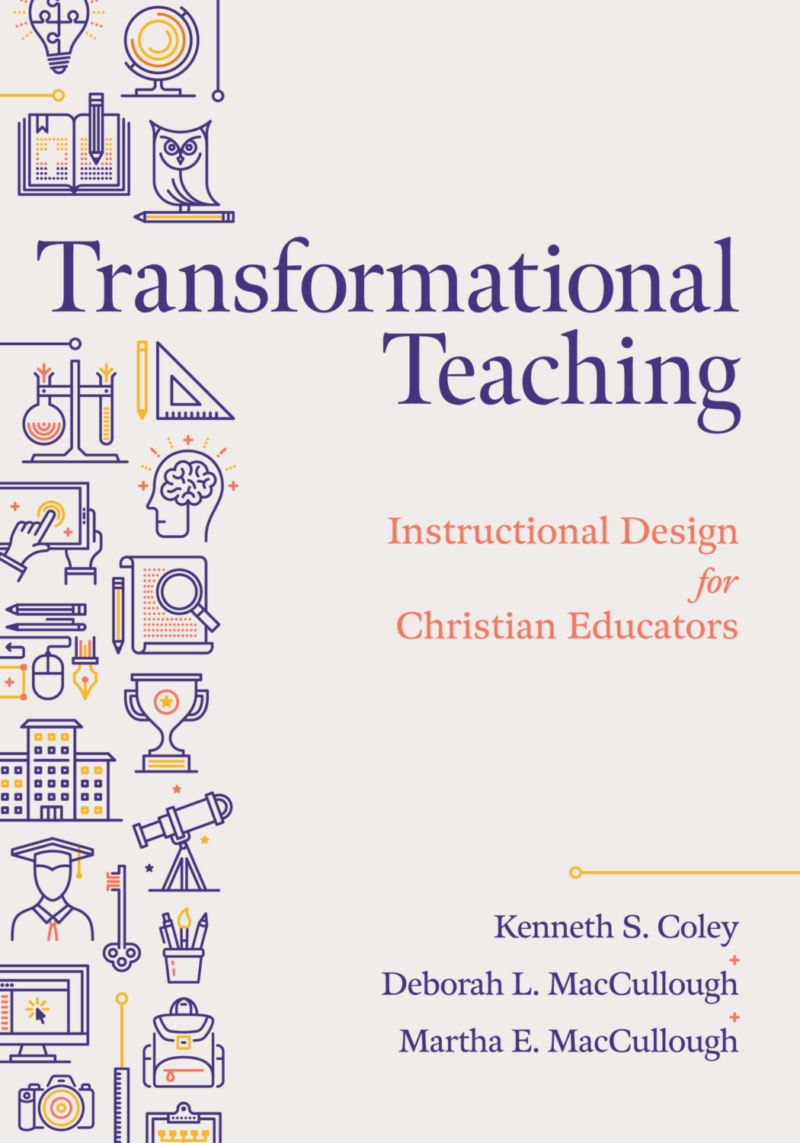Beyond the Book with Dr. Coley: “Transformational Teaching”
Chad Burchett | February 15, 2023

What are the practices of an effective teacher? How do teachers develop a Christian framework for the task of education, including pedagogical techniques, classroom management, and instructional design? Supplying answers to these important questions, Ken Coley, retired professor at Southeastern Baptist Theological Seminary, coauthored “Transformational Teaching: Instructional Design for Christian Educators” to help teachers-in-training learn the craft.
Written from a Christ-centered perspective, “Transformational Teaching” is a must-read for educators and aspiring teachers who desire a Christian introduction on teaching techniques and principles for the classroom. In the following Q&A, Coley takes the time to answer a few questions about his new book:
What is the book about?
Our text challenges Christian teachers to rethink every aspect of teaching — from curriculum development to planning teaching techniques to evaluation of student learning — and view each dimension through the lens of Scripture. In addition to instructional design, we present other aspects of the teaching/learning process such as classroom management and discipline from a biblical worldview perspective.
Who is the target audience?
Our primary focus is on coaching college students who are preparing for a career in K-12 education. Veteran teachers, particularly those who have not developed a Christian philosophy of education, will also benefit greatly from the book. Parents involved in homeschooling and directors of church educators will also be better equipped to fulfill their calling.
What motivated you to write the book?
Currently, higher education and seminary instructors must rely on books based on secular approaches to instructional design or assign multiple books by Christian authors to cobble together all aspects of teaching. We accepted the challenge to cover teacher training in one text.
What are some common pedagogical mistakes Christian educators make in their instructional design?
First, where no change takes place, no teaching and learning has taken place. The rote memorization of facts does not assure genuine change — hence the title, “Transformational Teaching.” Second, research says that durable learning takes place when the learners are engaged in the process. “The one doing the work is the one doing the learning,” as opposed to sitting passively and listening for the entire period. Third, the instructor is not the only one present with valuable insights and capable of meaningful contributions.
Where no change takes place, no teaching and learning has taken place.
What foundational considerations should inform a Christian educator’s pedagogy, and what initial questions should she ask when designing curriculum?
A Christian philosophy of education usually includes responses to these questions:
- What is my source of truth?
- What is the aim of education?
- What is the nature of the learner?
- What is the role of the teacher?
- What are instructional techniques that lead to transformation and durable learning?
How can Christian educators meaningfully integrate faith in a given subject area while wisely navigating cultural pressures and institutional guidelines?
The core principles for meaningful instruction can be found in Scripture. Put another way, all of the current pedagogical techniques emphasized in twenty-first century literature can be found in Deuteronomy 6 and the Gospels. All of them, unless it involves electricity.
How does “Transformational Teaching” equip readers to serve the Church and fulfill the Great Commission?
Luke 6:40 states, “When the disciple/pupil is fully trained, he will be like his teacher.” This suggests that one of our goals is to produce independent learners who can study Scripture for themselves and go and make new disciples. “Transformational Teaching” is all about this process.
How has your research and writing for this book shaped you spiritually?
I cannot change anyone. The “transformation” that we ultimately desire is God’s work.
I cannot change anyone. The “transformation” that we ultimately desire is God’s work.
Paul states in I Corinthians 3: 6-9a, “I planted, Apollos watered, but God gave the growth. So then neither the one who plants nor the one who waters is anything, but only God who gives the growth. … For we are God’s coworkers.”
But what we do is important and demands our best. Paul reflected on his ministry to the Colossians, “We proclaim him, warning and teaching everyone with all wisdom, so that we may present everyone mature in Christ. I labor for this, striving with his strength that works powerfully in me” (Col 1:28-29).
Transformational Teaching
Instructional Design for Christian Educators
Transformational Teaching by Kenneth Coley, Martha MacCullough, and Debbie MacCullough provides a comprehensive, Christ-centered introduction to instructional design and effective teaching. It will be useful for education courses, teachers-in-training, and experienced teachers who want to elevate their pedagogy from a Christian framework.
February 15, 2023
Paperback, 512 pages
